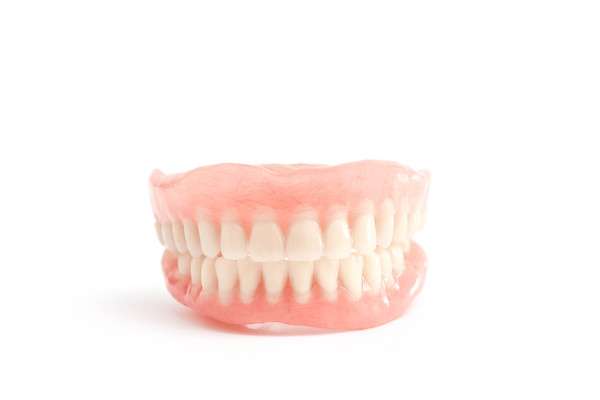 If a denture patient is experiencing sore gums, a denture relining may offer a better fit and more confidence. Dentures can have definite advantages, but only when they fit properly, allowing chewing and speech to be as normal as possible. Relining can help make this possible.
If a denture patient is experiencing sore gums, a denture relining may offer a better fit and more confidence. Dentures can have definite advantages, but only when they fit properly, allowing chewing and speech to be as normal as possible. Relining can help make this possible.
Know the types of denture relining
There are three main types of relines, each with its own benefits and disadvantages. A patient should become familiar with these terms as they can make a difference when deciding on use.
Temporary relining
When a patient has had ill-fitting dentures for a long period, causing soreness or an infection in the gums, the denture is lined with a soft, medicated material that helps the gums heal. Once healed, relining can be completed. If a temporary reline does not work, it is possible a new denture needs to be made.
Hard relining
This process entails lining the denture with material and fitting it to the patient. It then sets up to a firm, rubbery texture and subsequently replaced with acrylic, making the denture fit perfectly around all the curves of the gums. A hard reline can last for up to two years.
Soft relining
A soft reline can help compensate for uncomfortable rubbing by using a pliable material that can stay soft for a year or so, cushioning sore spots. If constant soft relining is needed, it is possible that the denture may need to be remade. The soft reline can last well beyond two years.
5 things to consider when making your choice
Armed with information regarding the types of relines available is a good start. Each person’s mouth and circumstances differ, however, changing the type needed. There are a few things a patient should consider prior to making that choice.
1. Why are relines needed?
A reline is necessary from time to time as the jaw changes. Shifting or shrinkage of the bones, gums or tissues are the main causes of needing an adjustment.
2. Does the denture have to go to the lab to be relined?
For a hard reline, the dentist sends an impression of the patient’s gums to the lab, where a permanent liner will be made. Once prepared, they will need to have the denture to place the reline. The process may take a day or two.
3. Can the dentist reline a denture in the office?
Both the temporary and the soft reline may be completed chairside, usually on the same day as a dental visit. The cost is less than a lab reline.
4. Can a patient reline the denture?
Do-it-yourself relining material can be purchased. The results are often uncomfortable and very temporary.
5. Can only a portion of the denture be relined?
It is not necessary to have the full denture relined. A dentist can discover where the problem lies and address just that section of the denture.
Check out what others are saying about our dental services on Yelp: Denture Relining in Kennewick, WA.
Conclusion
Dentures are a good solution for those who no longer enjoy healthy, natural teeth, but a good fit is essential. Denture relining can offer more comfort and a more secure fit.
Request an appointment or call Gledhill Dental at 509-800-8410 for an appointment in our Kennewick office.
Related Posts
Dental crowns are a popular dental restoration, effectively preserving and enhancing the function of damaged or weakened teeth. These custom-made caps are designed to fit over the existing tooth, providing both structural support and improvements in your smile's appearance. However, not all dental crowns are created equal. The type of dental crown you choose can…
All-on-4® dental implants can replace an entire set of teeth in a way that looks and feels natural. Commonly provided by general, cosmetic, and family dentists, this smile restoration has become a trusted and popular option among patients. With careful planning and professional care, the All-on-4 approach delivers predictable, stable, and natural-looking results for qualified…
Curious about when dental crowns are needed? Read on to learn more about this type of dental restoration. Oral health is often indicative of one's overall well-being. Although teeth are strong, they are susceptible to many problems that can weaken them. Dental crowns are the treatment of choice for such cases. These tooth-shaped caps fit…


